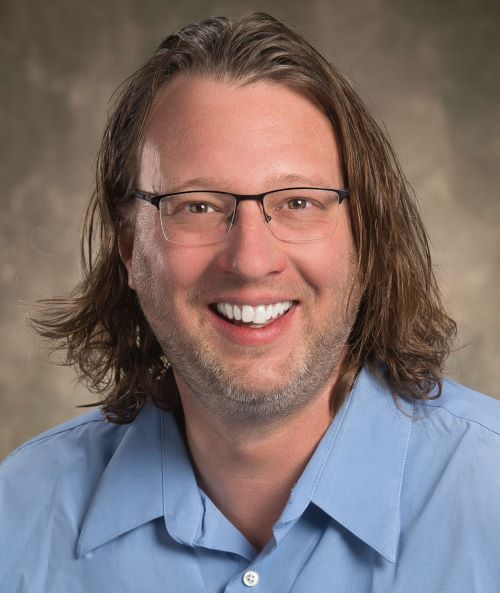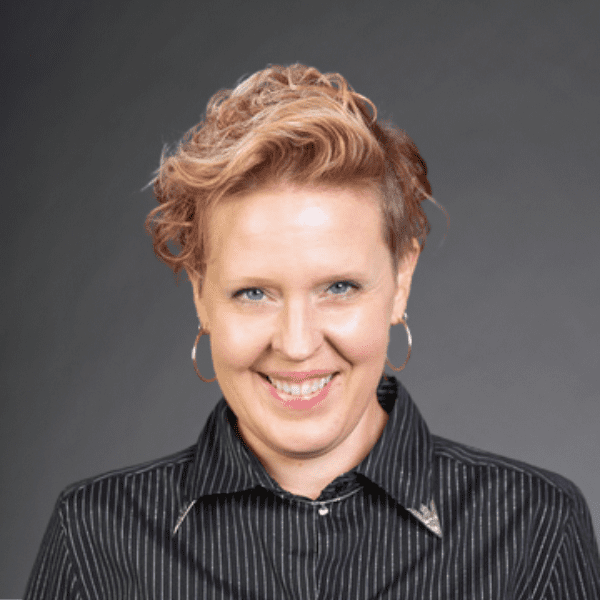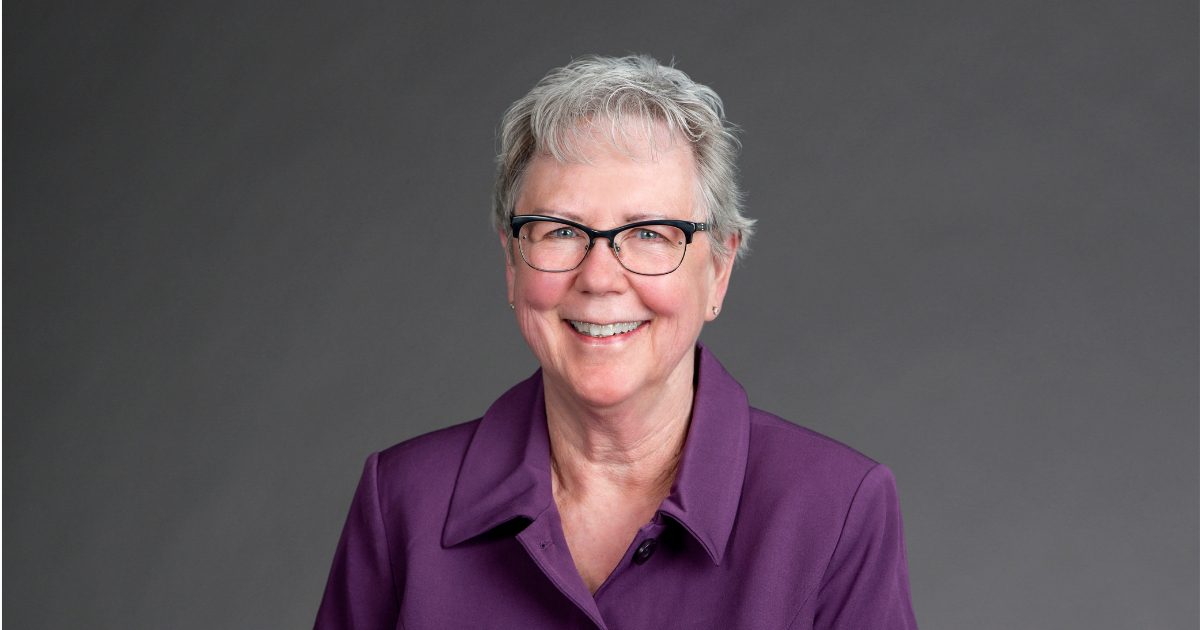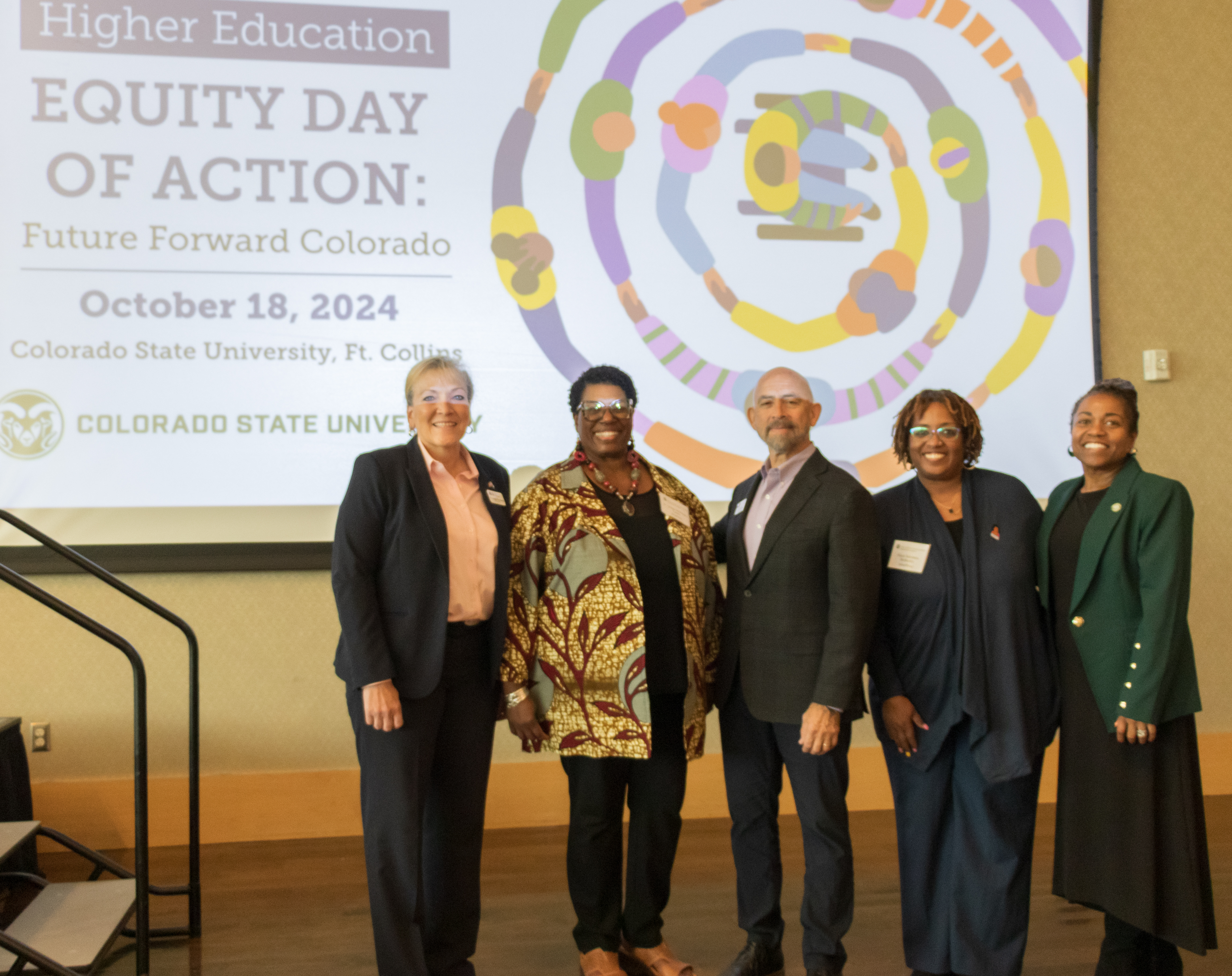
From delivering lessons to mentoring students, community college faculty are active in and outside the classroom. That’s certainly true for those serving on the State Faculty Advisory Council (SFAC), a shared governance body representing all 13 CCCS colleges. Members work closely with Chancellor Joe Garcia and the State Board to weigh in on issues affecting community college educators—from policies and procedures to legislation and budget priorities.
Travis Parkhurst and Dr. Catlyn Keenan, who teach philosophy at Pueblo Community College and Front Range Community College, respectively, are SFAC’s chair and faculty representative to the State Board. We caught up with them to learn more about SFAC and what the group hopes to achieve in the coming year.
This interview has been edited for length and clarity.
Tell us about your background. How did you end up teaching at the community college level?
Travis Parkhurst (TP): I went to Pikes Peak Community College and then transferred to the University of Colorado Colorado Springs like so many of our students do. Then I did my graduate work at Yale University. It was really appealing to go back to Colorado and teach in the community college system that I was academically raised in. How do I take the best parts of my experience at Yale and meet students where they are in the community college? That’s what I’ve been trying to do for my entire teaching career.
Dr. Catlyn Keenan (CK): I was working on my master’s degree, and my neighbor was a history faculty member at Front Range Community College. He asked if I wanted to teach, and I said, “Sure, why not?” I ended up getting a full-time position and have been in a variety of leadership roles since I’ve started at the institution in 2001.

There are many monetary limitations that are being placed on us and students, and I really wanted to change that. The mission of SFAC allows me to potentially address some of those issues.
What motivated you to join SFAC?
TP: As soon as I got into teaching, I realized there’s much more to it than just being in the classroom. There are many monetary limitations that are being placed on us and students, and I really wanted to change that. The mission of SFAC allows me to potentially address some of those issues.
CK: FRCC selects a faculty member from each of our three campuses and then we vote. I won by a very narrow margin! Representing the college at this level is really important, and it’s a really great honor to be selected. I’ve always been an activist at heart, and this is just another way of advocating for the needs of faculty and making sure that our voices are being adequately represented at the highest levels.
What are some of the roles and responsibilities of SFAC?
TP: Our job is to be a conduit of information between colleges and the System Office. It’s also an advocacy position. It’s our responsibility to make sure that the System is aware of concerns and that we’re finding avenues to address them.
CK: Our role as the shared governance body to me is the most important. We just redrafted the board policy on shared governance, so how we define it has also changed. We’re trying to figure out how we implement it at a system level. Other practical work that we do is examine, revise, and update board policies that say anything about faculty. In some ways that’s the most rewarding element of this work.

Representing the college at this level is really important, and it’s a really great honor to be selected. I’ve always been an activist at heart, and this is just another way of advocating for the needs of faculty and making sure that our voices are being adequately represented at the highest levels.
What are some of the key priorities going into the new academic year?
CK: One of our goals is developing a board policy on academic freedom. Every time we walk into the classroom, we theoretically should be protected by academic freedom, but there’s no board policy that explicitly explains what it is and then operationalizes what those protections look like. Specific to my role on the board, I have also been involved in the strategic planning from the beginning and continue to actively insert the faculty perspective in that process.
TP: Another goal is addressing faculty retention and morale. That may turn into a longer-term goal, depending on the data we end up collecting. The Board policy on SFAC is also up for review. Since that affects our bylaws, we’re going to see if there are any revisions that we could provide.
What’s unique about the community college classroom that you wish more people understood?
TP: It’s the diversity of backgrounds. There are so many people who don’t have the opportunity to experience education fully because of life circumstances. At the same time, you have traditional students who had a great academic experience in high school—and they’re right next to each other in the classroom. How do you reach each of these students? To me that’s the greatest challenge of teaching community college.
CK: When I walk into a community college classroom, it reminds me of a liberal arts college classroom. The classes are small, everybody’s calling each other by their first names, and everybody’s in it together. They all want to be there. They might have different levels of preparation, but they’re all passionately dedicated to getting an education. That is what I wish people realized.


